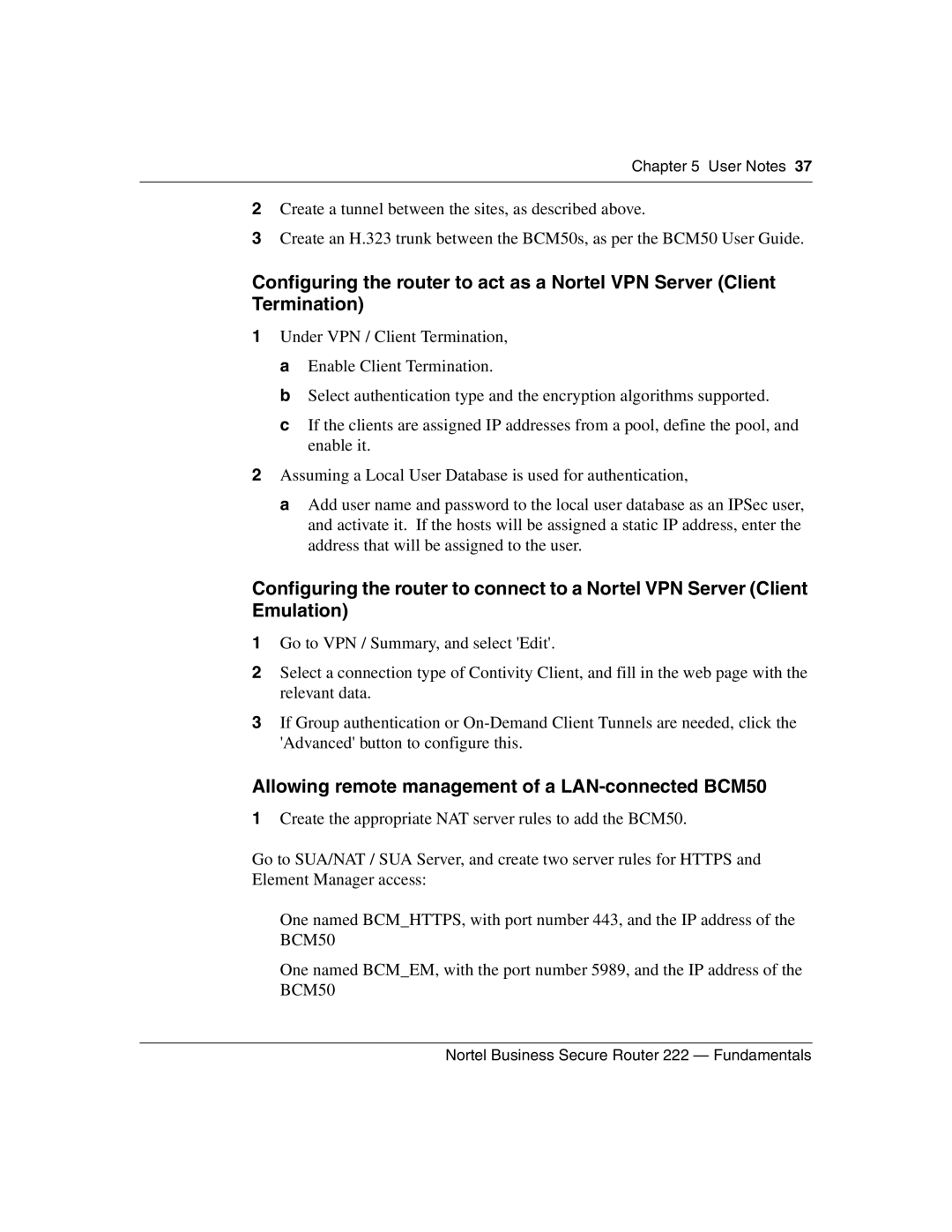
Chapter 5 User Notes 37
2Create a tunnel between the sites, as described above.
3Create an H.323 trunk between the BCM50s, as per the BCM50 User Guide.
Configuring the router to act as a Nortel VPN Server (Client Termination)
1Under VPN / Client Termination, a Enable Client Termination.
b Select authentication type and the encryption algorithms supported.
c If the clients are assigned IP addresses from a pool, define the pool, and enable it.
2Assuming a Local User Database is used for authentication,
a Add user name and password to the local user database as an IPSec user, and activate it. If the hosts will be assigned a static IP address, enter the address that will be assigned to the user.
Configuring the router to connect to a Nortel VPN Server (Client Emulation)
1Go to VPN / Summary, and select 'Edit'.
2Select a connection type of Contivity Client, and fill in the web page with the relevant data.
3If Group authentication or
Allowing remote management of a LAN-connected BCM50
1Create the appropriate NAT server rules to add the BCM50.
Go to SUA/NAT / SUA Server, and create two server rules for HTTPS and Element Manager access:
One named BCM_HTTPS, with port number 443, and the IP address of the BCM50
One named BCM_EM, with the port number 5989, and the IP address of the BCM50
Nortel Business Secure Router 222 — Fundamentals
